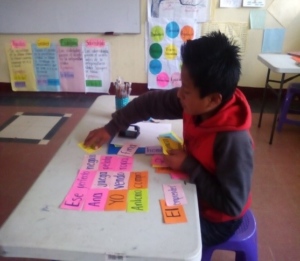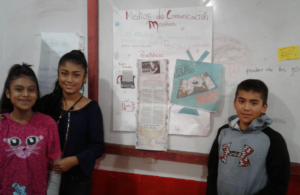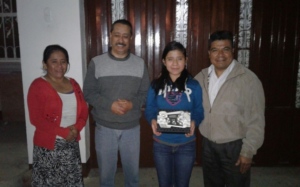How Important is Chinese Lending to Latin America?
Chinese lending to Latin America and the Caribbean hit an all-time high of $37 billion in 2010.

Education plays a fundamental role in human capital, helping to develop the productive skills and abilities that create economic value for individuals and societies. In Guatemala, low levels of human capital have important implications for economic development, resulting in low salaries and the presence of a significant informal sector.[1]
Responding to these needs, the Opportunities for My Community Project includes an extracurricular education program for youth.[2] The extracurricular program aims to strengthen human capital among youth in the Western Highlands of Guatemala.
When they return from school breaks, students have typically fallen two months behind from where they left off in both math and language skills, according to several studies.[3] One way to mitigate this is through summer programs that allow students to have academically or personally enriching experiences during their break from school. However, these types of programs are typically only available in larger cities and for people with the resources to pay for them.

Responding to this need, the project has implemented the B’etil Summer Course. This course provides an opportunity for young people to develop their skills, gain confidence in themselves, and envision a successful future for themselves, their communities, and their country.
The course has had a positive impact in the communities, responding to current needs among the student population. Student achievement indicators are low in all of Guatemala. However, in the Western Highlands, where the summer course is offered, student achievement indicators in math and language fall much below the average for Guatemala City. There are clear disparities in achievement among rural and urban areas. As such, it is important to reinforce student learning for communities in the Guatemalan Western Highlands (see Table 1). Moreover, academic enrichment activities are not as widely available in these departments, particularly for students from lower socioeconomic backgrounds.
Table 1: Percentage of students in the third year of middle school (Tercero Básico) that reached national standards in Reading and Math, 2006, 2009 and 2013[4]
Source: Guatemalan Ministry of Education data.
The program offers a high-quality vacation course for middle school students. As part of the vacation course, students develop writing and entrepreneurship skills through by writing essays about a business idea. Through the vacation course, the project reaches nearly 300 youth in areas of high emigration in the Guatemalan Western Highlands.
The course addresses not only summer learning loss, but also manages to strengthen student skills in writing and communication, areas that are weak, further promoting entrepreneurship. The course responds to the priorities and needs of the communities, addressing learning gaps and strengthening human capital.
During the 30-hour vacation course, students practice strengthening their grammar, spelling, and basic writing skills. Moving beyond the nuts and bolts, they learn to express their ideas in the form of an essay. As part of the course, they also learn about the economy in their towns and options for entrepreneurship.

To complete the summer course, students write an essay that presents their ideas and plans for a business, including its objectives, characteristics, market, and products.
To motivate students, an essay competition is held among the participating schools, offering gold, silver and bronze place prizes for each school. Then, the prize winners from each school advance to compete for a top prize at the program level.
The first essay contest at the program level was won by a student named Yoselyn in the town of Quetzaltenango for her essay, “Legal Services for Women,” where she presents an idea to offer legal services to women who are victims of domestic violence.
The ideas that students present are creative, diverse, thoughtfully explained and well written, reflecting strong work in both research and in written expression. Ideas have included an internet café, a pharmacy, a hotel, a bookstore, a hardware store, a cake shop, a car mechanic, and even a legal services firm for victims of domestic violence. Students’ ideas reflect careful consideration of economic viability as well as community needs.
Chinese lending to Latin America and the Caribbean hit an all-time high of $37 billion in 2010.
Venezuelan president Nicolas Maduro left China last month with a supposed show of support from the Chinese government.
Summary of PREAL’s recent international conference on teacher effectiveness, held in Guatemala City.
